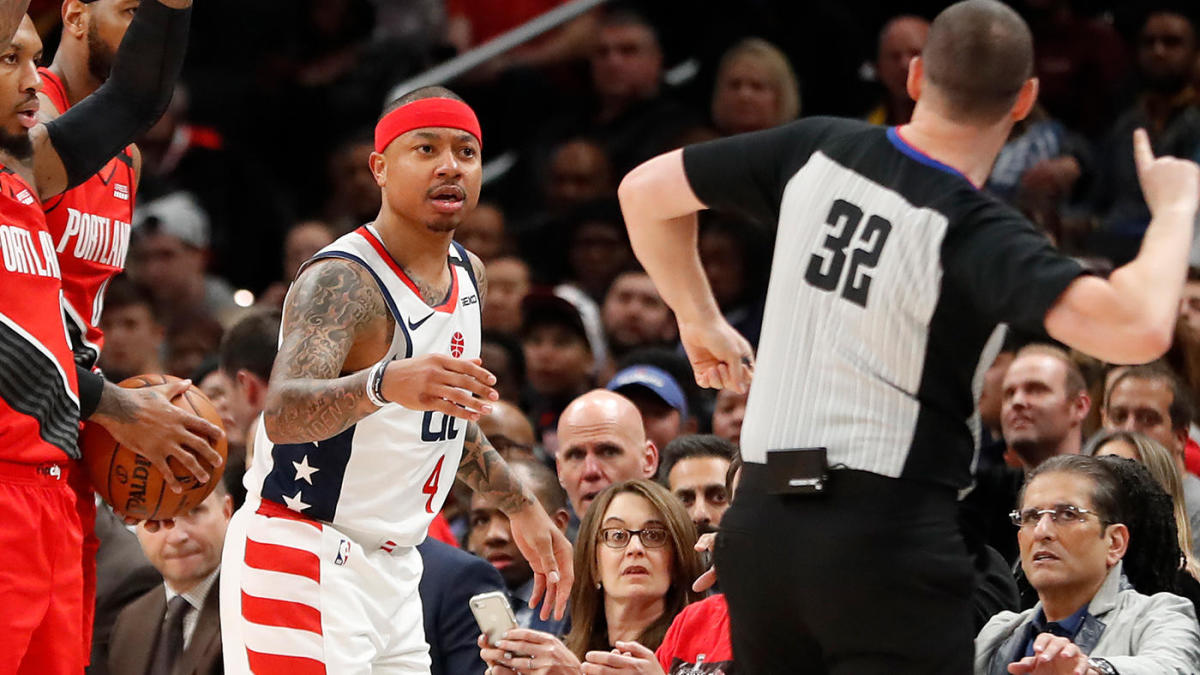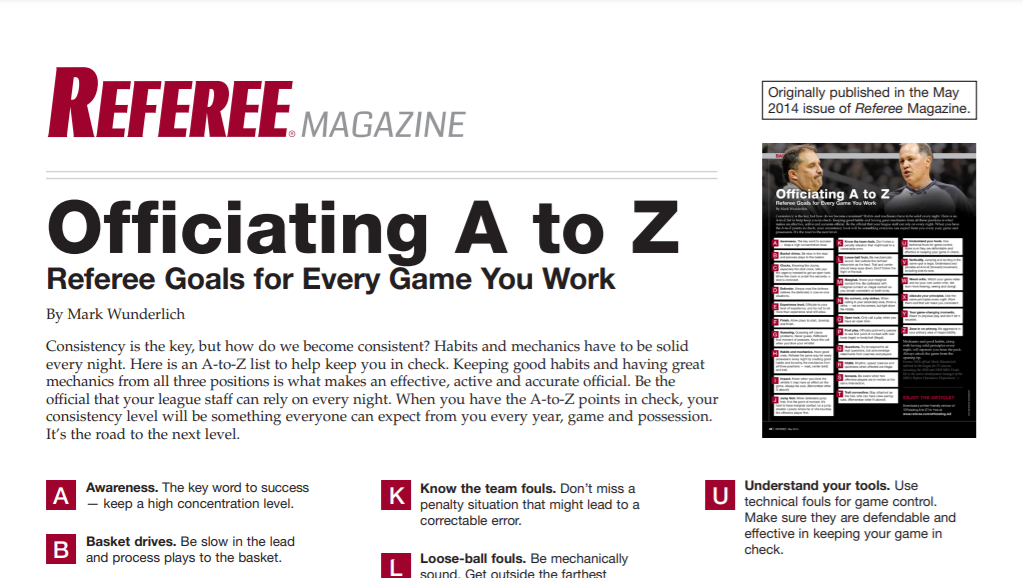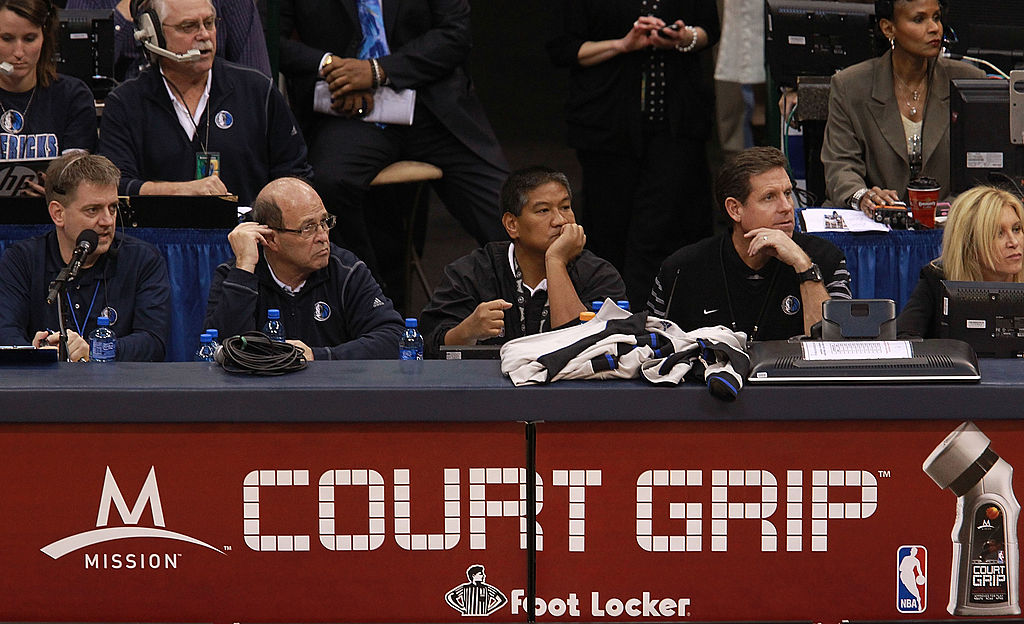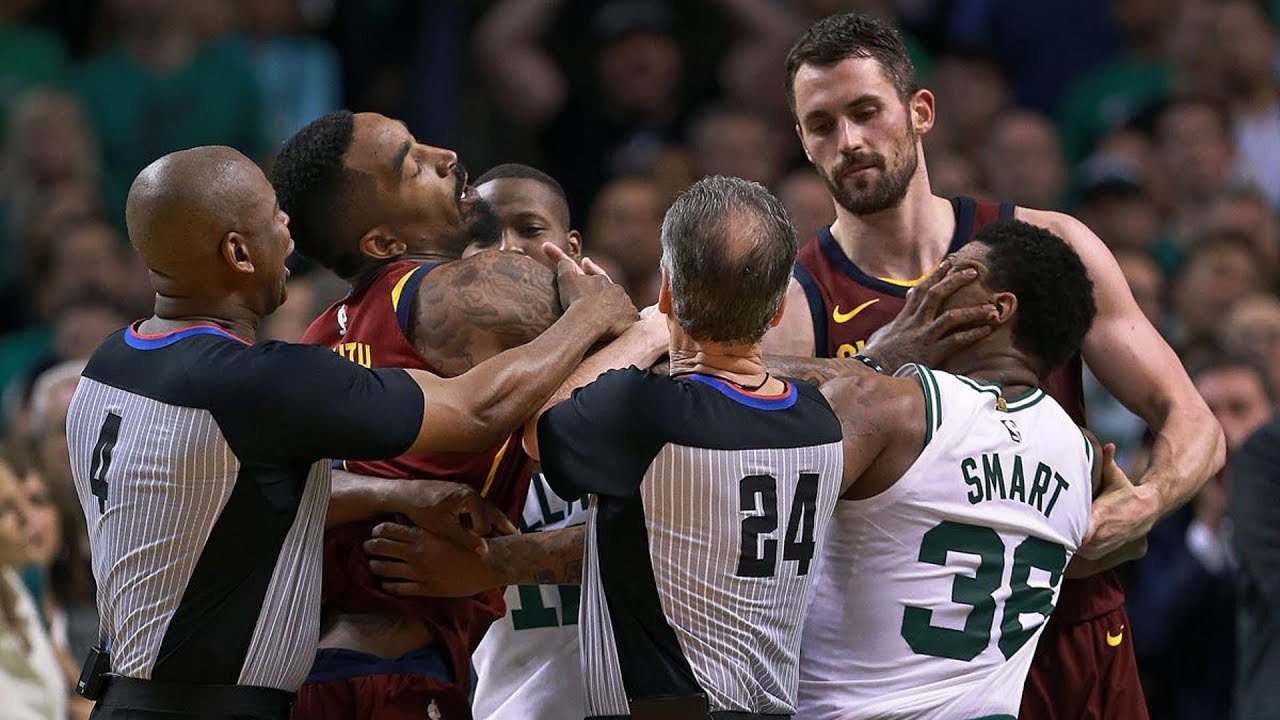
A very difficult moment to manage that throws every game off instantly. Some officials can stop it by forcefully over-officiating every foul in the game, but you can ruin what could be a good game. Take a look at these plays, which resulted in the game going out of control.
Fouls and irritants that we allow to happen in the game we encourage. When we don’t get the first foul, every foul after that usually gets worse until a foul is called. If the game got out of control, it must have been the result of at least one of the following:
- Not enough fouls were called, which turned into a physical game.
- A lot of disrespectful talking between the players was allowed in the game.
- Call inconsistency.
I’m sure I may be missing a few points which can let the game out of control. The point of this article is when to catch it prior to it completely folding.
You can’t stop players from committing stupid and/or hard fouls. It’s a part of the game. These hard fouls tend to lead to fights breaking out. There is one thing that is consistent prior to every fight that breaks out in sports.
The longer the players that are involved in the play stay close together after every hard/crucial foul, a fight is potential. As an official, we must stay connected to the play after the foul has been called until the players are separated from each other.
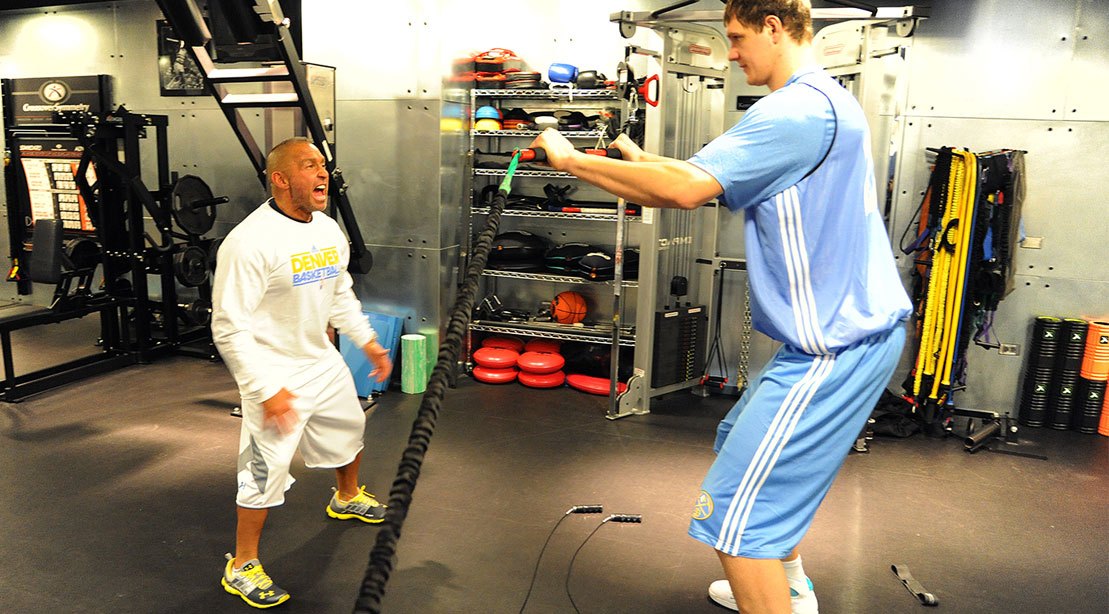
A definite issue especially during this time is the ability to maintain a healthy body. When you’re stuck at home, traveling with work, on vacation, or quarantining, it isn’t always easy to stick to an exercise routine or maintain your fitness goals. You may only have limited access to fitness facilities or find it difficult to adjust to a new routine. Perhaps you miss the camaraderie of your gym, the familiarity of swimming laps in your local pool, or the social connection from walking or hiking with your usual group of workout buddies. If you’re used to attending a fitness class with a motivating instructor, you might also be disappointed in the intensity of workouts on your own.
Prioritize your workouts. People who put their fitness activities on the same calendar as their regular appointments tend to stick to their plan. You wouldn’t cancel your appointment with your dentist because you were busy with work or just didn’t feel like it at that moment. Rather, you’d fulfill your obligation and then return to work afterwards.
Workout at the time that’s right for you. Many people who maintain a long-term exercise program workout in the mornings. Completing your fitness routine in the morning can energize you and set a positive tone for the rest of the day. Others find it helpful to take a break from work and get moving in the afternoon when their energy is flagging. A burst of activity can stimulate the brain and help you push through the rest of the tasks on your to-do list.
Be specific in your goals—and track your workouts. Rather than aim to “get in better shape,” set a concrete goal such as “walk 30 minutes in the morning on Monday/Wednesday/Friday/Saturday.” Try one of the many fitness trackers or smartphone apps available to keep a record of your progress—or simply use a calendar to note the length of your workout, distance, and effort level. Tracking your progress can help keep you accountable, provide a sense of accomplishment, and encourage you to keep going.
